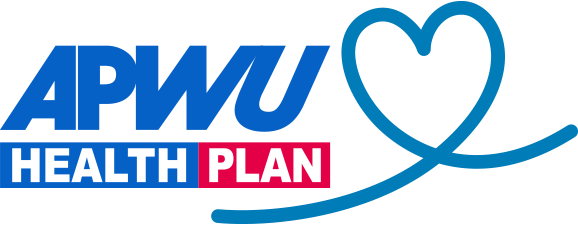Whether you’re a first-time mom or already have kids, the health care you receive when you’re pregnant is an important part of a healthy pregnancy for you and your baby. Regular prenatal visits throughout your pregnancy can help catch potential issues early and reduce the risk of complications. These checkups also give you a chance to learn how to manage any discomfort you’re experiencing and ask questions about your pregnancy and the birth of your baby.
Begin prenatal care early
As soon as you think you may be pregnant, schedule your first prenatal visit. Ideally, you should see a health care provider before you get pregnant, but if that’s not possible, try to start your prenatal visits as soon as you can.
If you’re further along in your pregnancy, prenatal care is still important. It’s never too late to seek care, so call your doctor or health care provider right away to schedule a visit.
Various health care professionals provide prenatal care, including:
Obstetrician/gynecologist (OB/GYN) — A doctor with specialized training to provide care during pregnancy, labor, and delivery.
Family physician — A doctor trained in primary care.
Certified nurse midwife — A nurse trained to care for those with low-risk pregnancies.
Nurse practitioner — A nurse licensed to provide prenatal care.
Check your health plan documents to see what types of prenatal care your insurance covers.
How often to schedule your prenatal care appointments
While your prenatal exam schedule may vary depending on your personal health history, for pregnancies without complications, prenatal visits are usually scheduled as follows:
- Up to week 28: Every month
- Weeks 29 – 36: Every two weeks
- Weeks 37 – delivery: Every week
Your health care provider may recommend additional prenatal care if you have a preexisting medical condition, like diabetes or high blood pressure, if you’re over the age of 35, or if problems develop during your pregnancy.
What happens during prenatal care visits?
The goal of prenatal care is to provide the best care for you and your baby as you prepare for a healthy delivery. During prenatal visits, your health care provider will perform tests to check for potential risks, treat any complications, and monitor the development of the fetus.
Your health care provider will also recommend steps you can take to help you and your baby stay healthy. If you smoke, ask for suggestions to help you quit.
Prenatal visits are also a great time to ask questions, including:
- What’s the right amount of weight I should gain during my pregnancy?
- What foods should I eat? What foods should I avoid?
- Should I worry about the glass of wine I drank before I found out I was pregnant?
- What can I do to relieve my morning sickness?
- Is it safe for me to exercise? What are the best ways to stay active?
- Is it okay to have sex?
- Should I keep taking my prescription medications?
- Do I need any screenings or vaccinations?
- Are there any symptoms I should watch for?
- Is it safe for me to travel?
- What’s the best way to reach you if I have questions after office hours?
First trimester prenatal visits
At your first prenatal visit, your health care provider will review your medical history, perform a complete physical exam, administer a blood test, and check your urine to measure sugar and protein levels. Prenatal screening tests also provide valuable information about your baby’s health.
During the review of your medical history, you may be asked about:
- Your menstrual cycle
- Any past pregnancies
- Prescriptions, over-the-counter medications, or supplements you take
- Your use of tobacco, alcohol, and caffeine
- Your exposure to infections or STDs
The physical exam helps to determine the amount of weight you need to gain for a healthy pregnancy. Steps include:
- Check your blood pressure
- Measure your weight and height
- Calculate your body mass index
The blood test allows your provider to check your blood type and Rh status to determine if you need special care during your pregnancy. In addition, your hemoglobin may be tested to make sure you’re not showing signs of anemia. Anemia can cause you to feel tired and may affect your pregnancy.
During your first trimester prenatal visits, other potential tests include a breast exam, a pelvic exam, screenings (heart, lungs, and thyroid), and a Pap test to screen for cervical cancer.
Second trimester prenatal visits
During the second trimester, morning sickness often begins to ease. As your belly becomes more noticeable, you may start to feel the baby move or kick. Movement is unpredictable, but you may notice flutters for the first time around 18 to 20 weeks of pregnancy. Prenatal care at this stage often includes lab tests to track your baby’s growth and listen to your baby’s heartbeat.
Second trimester prenatal visits may also include:
- Blood tests to screen for genetic or chromosomal conditions
- Imaging tests, such as an ultrasound to produce images of your baby (and reveal your baby’s sex)
- Blood tests to check your blood count and iron levels and screen for gestational diabetes, which can develop during pregnancy
Third trimester prenatal visits
During your third trimester prenatal visits, as your due date approaches, you’ll probably have more questions. Talking to your health care provider about what’s on your mind can help calm your nerves before delivery.
At this stage, your health care provider will check your weight gain and your baby’s heartbeat. You may also be given vaccinations and screened for a common bacterium called GBS. Talk to your health care provider if you’ve experienced contractions, fluid leakage, or bleeding, and keep track of how often you feel the baby move each day.
Near the end of pregnancy, your health care provider will check your baby’s position in the uterus. If your baby is positioned rump-first or feet-first, your health care provider will probably want to start planning for a C-section delivery.
Prepare for a healthy baby
Scheduling regular prenatal visits can help you and your health care provider identify and prevent risks and complications during your pregnancy. Starting prenatal care as early as possible is one of the most important steps you can take to make sure you have the healthiest baby possible.



